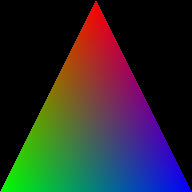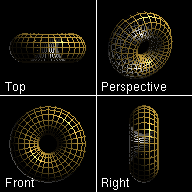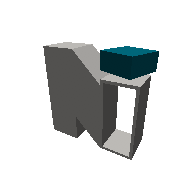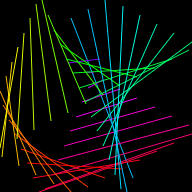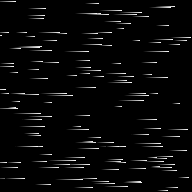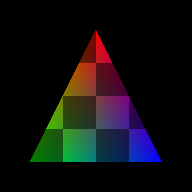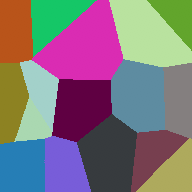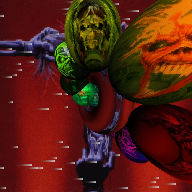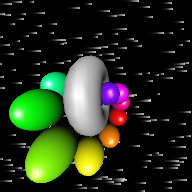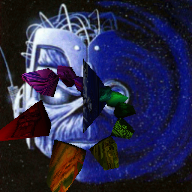Source code to all programs (sgi-src.zip 856KB)
Source + Windows executables (sgi-win32.zip 1.16MB)
Source + Mac OS X executables (sgi-macosx.zip 912KB)
|
A simple program to compute the area of a rasterized triangle. Prints out
the exact area according to the window size, then uses the OpenGL feedback
mechanism to get the actual size of the rasterized triangle. This is
useful if you want to know how many pixels you are actually drawing (fill
rate).
|
A program that shows how to use multiple viewports in a single context (using
scissoring). Macros are provided for doing top, bottom, left, right &
perspective views.
|
Network Integration Incorporated logo. The dot on the "i" spins around.
I wrote this for my friends SCott and Todd who have a vested interest in
NII.
|
An example of a 'qix'-like line demo, but without the traditional erase
lines, and with anti-aliased lines. Screen-saver mode also available
(#define SCREEN_SAVER_MODE when compiling).
|
An example of a scrolling starfield in OpenGL. You really have to see this
one in action to appreciate it! Screen-saver mode also available (#define
SCREEN_SAVER_MODE when compiling).
|
An example of using null bitmaps to place the rasterpos at positions that
may be clipped.
|
An example of rotating a bitmap (w/o OpenGL's help). I wrote this for my
little brother John.
|
A simple program to show how to do a 'swaptmesh' to generate a longer
triangle strip in OpenGL.
|
A simple program to show how to do texture mapping.
|
Uses the depth buffer to intersect cones drawn at each point selected by the
user, thus creating a voronoi diagram.
|
A killer "Iron Maiden rocks out with OpenGL" demo (according to Mark Kilgard).
I wrote this program for the OpenGL Developer Labs. It has a performance
counter and metrics for how many pixels were filled per frame.
|
|
The maiden program with texture mapping enabled. Many features can be
toggled, including the filtering method (point sampled/bi-linear) & the
environment mode (decal, modulate).
|
|
In addition to a lot of OpenGL state that can be toggled, the level of
detail of the spheres and torus can be changed. Since the program was
designed to be a pseudo-benchmark, you can enable a background to stress
fill-rate, or crank up the teselation (lod) of the objects and add a
starfield to become transform limited.
|







